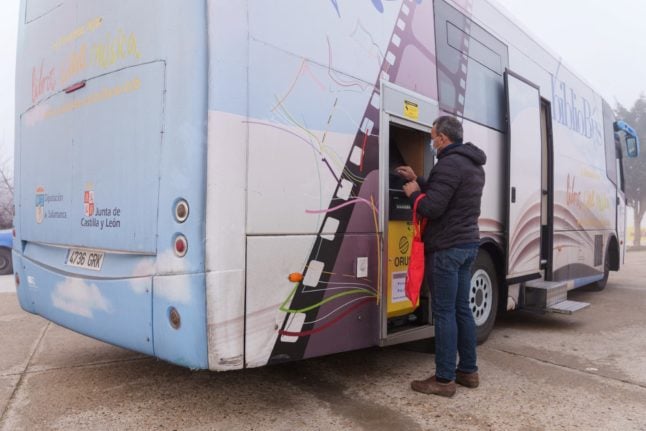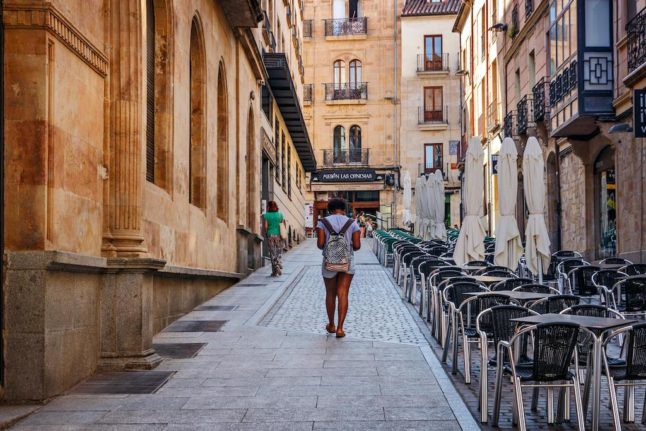On Tuesday February 6th Spain’s Parliament voted in favour on processing a draft bill which aims to guarantee ATM services in towns and neighbourhoods considered at risk of ‘financial exclusion’.
Bank branch closures and a lack of ATMs have become a problem in rural Spain in recent years. Between 2008 and 2019, Spain had the highest number of branch closures and job cuts in Europe, with 48 percent of its branches closing compared with an average of 31 percent across the continent.
As banking increasingly becomes online and digital, the lack of access to bank branches and cash has a disproportionate impact on older and more rural Spaniards.
In 2021, the Bank of Spain warned that almost three percent of the Spanish population, around 1.3 million people, find it difficult to get their hands on legal tender.
READ ALSO: ‘I’m old, not stupid’ – How one Spanish senior is demanding face-to-face bank service
The draft legislation, first proposed by the Catalan Parliament, aims to alleviate these issues and denounces the “constant and persistent closure of bank branches and ATMs over the last decade.”
“It has become an unavoidable reality, especially affecting vulnerable groups,” the text states.
The law essentially aims to guarantee access to basic banking services through local ATMs in these ‘at risk’ areas.
The initiative states that municipalities and neighbourhoods at risk of financial exclusion must have “at least” one ATM, and in the case of local authorities that are smaller than a municipality, the right of access to banking services should be guaranteed by the ATMs of the municipality to which the town or village belongs.
It defines a municipality at risk of financial exclusion as one that does not have an ATM in its municipal area, and a neighbourhood at risk of exclusion is considered part of a city, town or village with at least 5,000 inhabitants and without banking services.
As such, the proposals include plans to force banks to install ATMs in at risk municipalities, as well as paying for their installation.
In fact, the bill states that installation and maintenance costs “may not be passed on to the users of the service.”
READ ALSO: How rural Spain is rebelling against rampant bank closures
If the bill is passed, ATMs must be accessible and provide banking services 24 hours a day, all year round. They must also offer services in the co-official languages of the region, such as Basque in Basque Country and Valenciano in Valencia, for example.
The text also asks the Bank of Spain to draft and send the Ministry of Economy a preliminary list of municipalities at risk of financial exclusion within three months of the law entering into force. Once a list of municipalities has been drawn up, the banks will have one month to propose installation plans of one (or more) ATMs in the areas listed.
The problem of financial exclusion has been particularly felt in rural areas in the Spanish regions of Castilla y León, Galicia, Aragón and Andalusia, where people, especially the older population, are finding it difficult to access their pensions and deal with online banking systems. This problem, among many others, is pushing people out of rural areas in Spain, making the depopulation in these areas even worse.
READ ALSO:
- Spain struggles to repopulate its deserted rural interior
- How Spaniards are helping to save the country’s 4,200 villages at risk of extinction
But it is not only politicians seeking a solution to this problem. In October 2022, the Spanish banking sector signed an agreement to make banking services more inclusive across the country.
However, while welcome, the plans were only subject to oversight by the banks themselves and did not legally oblige them to do anything. As a result, in some small towns bank branches and ATMs continued to close down.



 Please whitelist us to continue reading.
Please whitelist us to continue reading.
Member comments